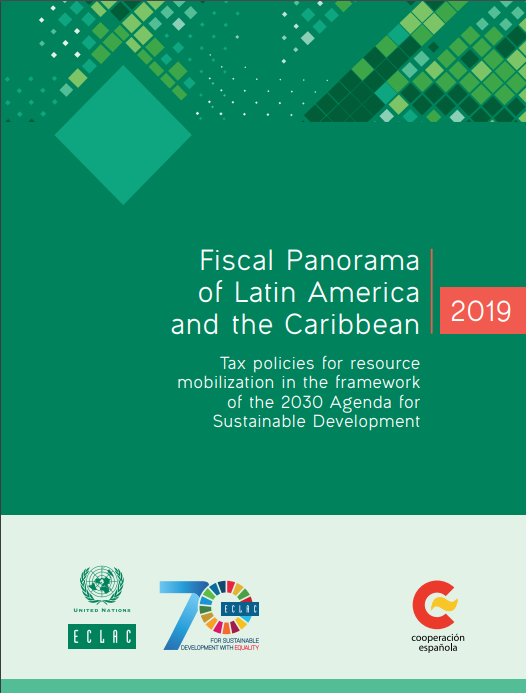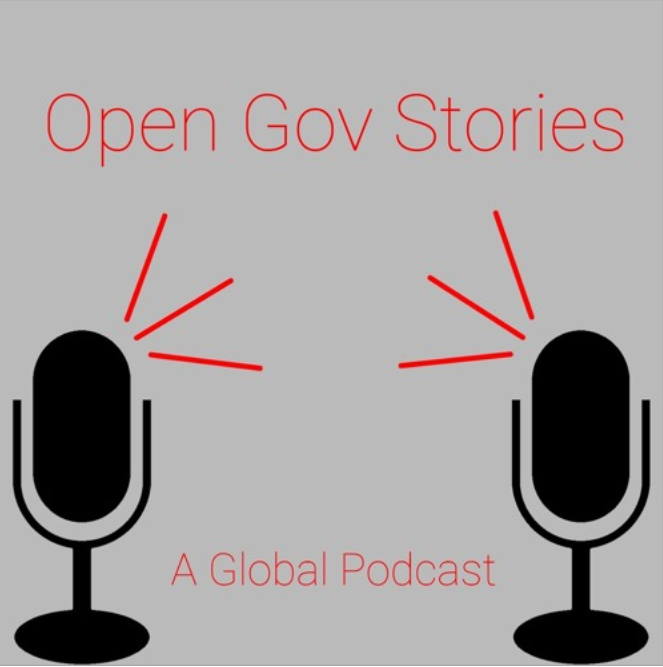Highlights:
- City of love for extractives transparency
- Refreshing roles and commitments
- Knowledge is (sometimes) power
- Crown compromise
- Lose the jargon
- Just give up (the $ and the power)
- TAI Spotlight: Learning from evidence video and legal aid
In case you missed it…
City of love for extractives transparency

Photo: Photo by Dominik Vanyi on Unsplash
Last week saw lovers of extractives transparency gather in Paris for the 2019 EITI Global conference. Interesting to see more prominence for beneficial ownership and for gender issues (as at the recent OGP Summit) as well as more concerted attempts to reconcile ensuring benefits of extractives production with the climate crisis. TAI enjoyed facilitating a discussion on EITI impacts – intriguing to see the variety of ways different member countries conceive of their impacts. There was the usual list of closing country commitments, e.g., Tanzania’s promise of a portal to publish mining contracts (don’t hold your breath!) and Equatorial Guinea making another attempt to rejoin the initiative.
Luckily, organizations like Forbidden Stories, a non-profit media collaborative dedicated to reporting stories from journalists facing threats, prison, or murder, are holding countries and companies to account for lack of extractive transparency. Their recent investigation into Guatemala’s largest nickel mine found that its operator, the Swiss-based Solway Group, paid only £1.4 million in the first four years of operations, a mere 1% of its revenues. Let’s hope policymakers in Guatemala read a recent blog from EITI on improving extractive industries governance in Latin America and the Caribbean. One recommendation is to improve the links between extractive industries and the SDGs, including more intersectoral policies around environmental preservation. This is definitely needed in the crucial but often underappreciated sand industry, which was the subject of a recent report from Chatham House. They argue that booming infrastructure development is creating an unsustainable demand for sand that, if not properly managed, will lead to serious environmental, political, and social consequences.
Refreshing roles and commitments
The EITI conversations also revealed the difficult perspectives on dealing with civic space across government, industry, and civil society – with the validation of Myanmar a flash point. How have open government efforts expanded while more governments are clamping down on segments of civil society? To put this paradox into perspective, Saskia Brechenmacher from Carnegie Endowment for International Peace offers three explanations. That there could be simply two different sets of countries: as some governments commit themselves to greater openness, others become more closed. That governments’ commitments to greater openness are merely superficial. And that governments have different conceptions of openness. How to resolve the paradox? She makes the case for international open government initiatives to carefully weigh their role and leverage particularly if the partner government lacks real reform commitment. (Her recommendations are very apt in “half-open” governments, a term coined by an article we previewed in an earlier Weekly and which is now available in full.)
As CSOs face harsh government tactics, women and women’s rights activists are often among the first targets of male-led authoritarian regimes. To counter the current crop of strongmen, Colleen Scribner argues that democratic governments and other donors should fund women’s rights organizations more robustly and intelligently. For his part, Antoine Buyse from Guardian analyses how protestors in Sudan and Hong Kong show how street protest movements are learning from mistakes of the past and from successful tactics abroad to make their voices heard.
To help strengthen civil society, Jenny Hodgson makes the case of collaborative citizen action, harnessing the power of the people, and shifting power away from the hands of big institutional gatekeepers. A case in point is the efforts of 11 Accra-based CSOs working on social accountability, anti-corruption, and governance that influenced implementation and monitoring of the IMF-backed extended credit arrangement for Ghana (2015–18). Their sustained advocacy efforts have led to the safeguarding of pro-poor development spending and extension of the IMF program by a year.
As we’ve been noting through examples in past Weeklies, internet shutdowns are on the rise around the world. They are no longer a surprise especially during election seasons. Al Jazeera’s Charlotte Mitchell explores why authorities turn to this approach, how they do it, what can be done and consequences.
How can we address governance factors in peacebuilding and conflict prevention? Mercy Corps researchers found out that clearly categorizing root causes into broad categories helps to bring the common assumptions shaping the policy discourse into focus and can help organizations working on conflict prevention to match context-specific diagnoses of root causes to innovative program designs.
Essential listening

Who wields power in human development? Should the development community address inherent power dynamics more deliberately? Patrick Fine from FHI 360, and Paul O’Brien of Oxfam America explore four types of power and the currency of power in human development. Listen here.
Knowledge is (sometimes) power
Is the use of open government data associated with higher levels of accountability and improved service delivery in developing countries? Michael Christopher Jelenic makes the case that it can, based on research in the education and health sectors in Sub-Saharan Africa. But those effects are differentiated both between those sectors and in terms of service provision versus service outcomes, suggesting open data is still not a panacea for service delivery problems. Alan Hudson, with Jelenic’s paper in mind, proposes moving toward an open data approach that starts with sectoral challenges, then proceeds to a political economy analysis of the system of actors and relationships in a particular sector. And if you ever doubted that the information provided by open data could be enough to affect behavior change, David Evans has ten examples where simply providing information did indeed change behavior.
As a community, governance practitioners now celebrate adapting strategies in light of experience, so good to see Open Contracting Partnership reflecting on their experience of providing implementation support to countries and working with Reboot to adapt the offering. The result? Check out the Lift Program for reformers.
Crown compromise
Signs of a positive outcome for transparency advocates as the UK Crown Dependencies – Jersey, Guernsey, and the Isle of Man – move on shifting to public beneficial ownership registers, though questions remain, such as on the pace of change.
Turning to tech solutions, can AI be deployed in anti-corruption work? Per Aarvik makes the case for using AI and machine learning to increase anti-corruption efforts. Check out results from TI’s project in Ukraine monitoring the procurement system Prozorro.
Finally, can countries lower taxes and raise revenues? For those remembering their economics classes, the Laffer Curve shows that when tax rates are very high, it might be possible both to lower tax rates and raise revenues. However, as The Economist visualizes, the reality of tax cuts paying for themselves is very elusive in practice.

Long read

An analysis of the constraints of domestic resource mobilization caused by fiscal incentives and how these incentives could be directed towards investment to foster sustainable and inclusive development.
Lose the jargon
Last week, we covered an African perspective on the need for data rights, now Open Data Institute fleshes out the need to build a language around data that people can understand and engage with. Elsewhere, Open Democracy points out the need to better manage not only who “owns” our data, but who can analyze it.
Want to improve your data analysis and reporting skills? The New York Times launched an intensive bootcamp on data analysis for its reporters. Benefit from an open-source version of the course materials. Top up with more knowledge on data visualization and interpreting time series data from UCLA. Ever wondered how data science is improving M&E for international development? John Mataya makes the case for smarter surveys lean on data science. Text analytics will unlock new insights in M&E work, and computer vision opens new unforeseen opportunities.
Just give up (the $ and the power)
What makes for smart grantmaking? Fred J. Ali, Claire Knowlton, and Trella Walker remind us how grantmakers often raise more questions about an organization’s financial health and its access to additional dollars than about its work. In order to advance diversity, they pick up on the overhead issue and urge funders to “pay them [grantee organizations] not just to deliver a program but to support the infrastructure and administrative overhead it takes to deliver high-quality results.” Not that money alone will cut it. To ensure inclusive grantmaking, Ise Bosch and Claudia Bollwinkel argue for the need to pass on the decision-making power along with the money.
Thinking of incorporating diversity, equity, and inclusion (DEI) in your grantmaking process? Check out Arabella Advisors’ list of recommendations. The first one is grant strategy. Also, see their journey to achieving DEI.
Finally, we turn to a favorite of TAI – the power of stories to drive change. Cecile Richards powerfully argues that, “The only things people remember are stories. That’s it.” Annie Neimand and Samantha Wright urge that, “To break down the prevailing ‘us’ vs ‘them’ narrative, social change organizations must find ways to better engage existing supporters and reach new ones. They must be mindful of how the stories they tell may serve or stand in the way of this effort.” (Want more? Don’t forget our story behind the story report for tips and strategies on how to telling intentional and our new repository of social change stories with Open Gov Hub.)
TAI spotlight
Learning from evidence through a funder collaborative | TAI
How can a funder collaborative engage with evidence to improve grantmaking practices? Listen to views from our members in this YouTube video.
What makes for a functional learning collaborative | TAI
In this blog Varja Lipovsek, MIT GOV/LAB offers 5 reflective questions that can help in knitting together a functional and meaningful learning network.
Using legal aid and strategic litigation to promote press freedom | Luminate
Luminate share why they’re supporting Media Legal Defence Initiative to leverage legal aid and strategic litigation to promote press freedom.
Working together to deliver aid | DFID
DFID media team highlights how aid is spent across government and other institutions.
Interview: Stephen King, CEO of Luminate | Luminate
Stephen King, in an interview with Alliance explains the rationale for separation of Luminate from Omidyar Network and talks about how and where Luminate works.
*Don’t forget to check out our newly launched Open Gov Stories Global Podcast Series with Open Gov Hub. It goes behind the scenes to explore why social changemakers do the work they do. Listen to more than 20 stories from people in the TAP field and add yours!

Calls: Proposals, papers, speakers and course invites
- Request for Expressions of Interest: Country-Level Research on Public Participation Commitments in OGP: July 8
- Re-using Open Contracting Tools: July 10
- Call for Applications: 100&Change: July 16
- Consultancy Opportunity: Utilizing Beneficial Ownership Information for Public Accountability by OSF: July 19
- Request for Proposals: Women’s Political Participation in Hybrid Regimes: August 9
- Reagan-Fascell Democracy Fellows Program – October 1
On the calendar
- Global Conference on Transparency Research – June 26 – 27, 2019 (Rio de Janeiro, Brazil)
- Environmental disaster & extractive sector accountability in Africa – July 2, 2019 (London, UK)
- Tax Justice Network Conference 2019 – July 2 -3, 2019 (City, University of London, UK)
- ATI/ITC Tax and Development Conference 2019 – July 2 -4, 2019 (Berlin, Germany)
- IDEAS 2019 Global Assembly and Third International Conference on Evaluating Environment and Development – September 30 – October 4, 2019 (Prague, Czech Republic)
- Global Symposium (COPGS) on Citizenship, Governance, and Accountability in Health – October 15-18, 2019 (New Delhi, India)
- What Works Global Summit 2019: Building Evidence – October 16 – 18, 2019 (Mexico City, Mexico)
- Global Perspectives 2019 – October 29 – November 1, 2019 (Addis Ababa, Ethiopia)
- The Story Conference – November 27-29, 2019 (Melbourne, Australia)


